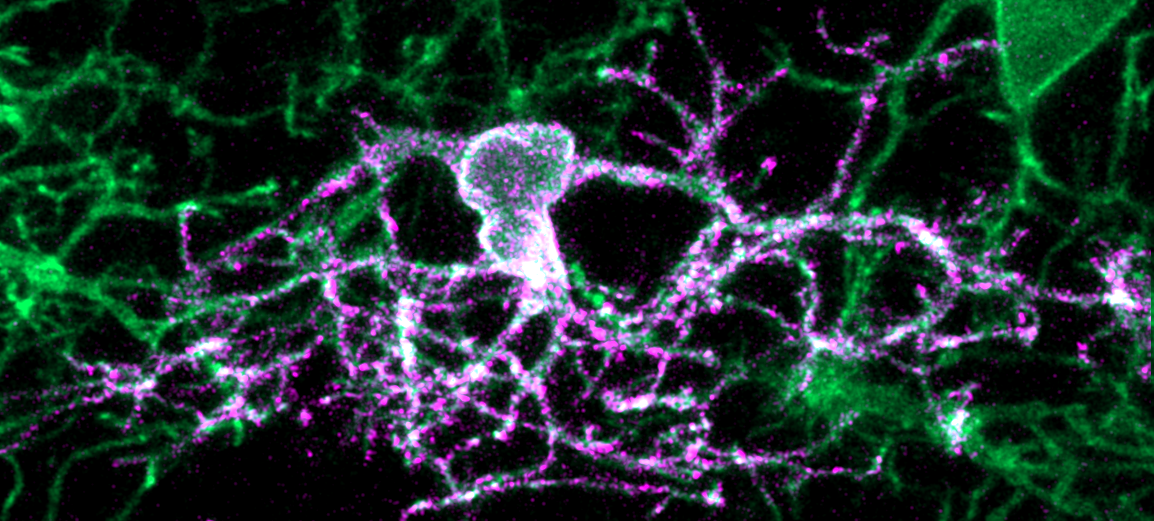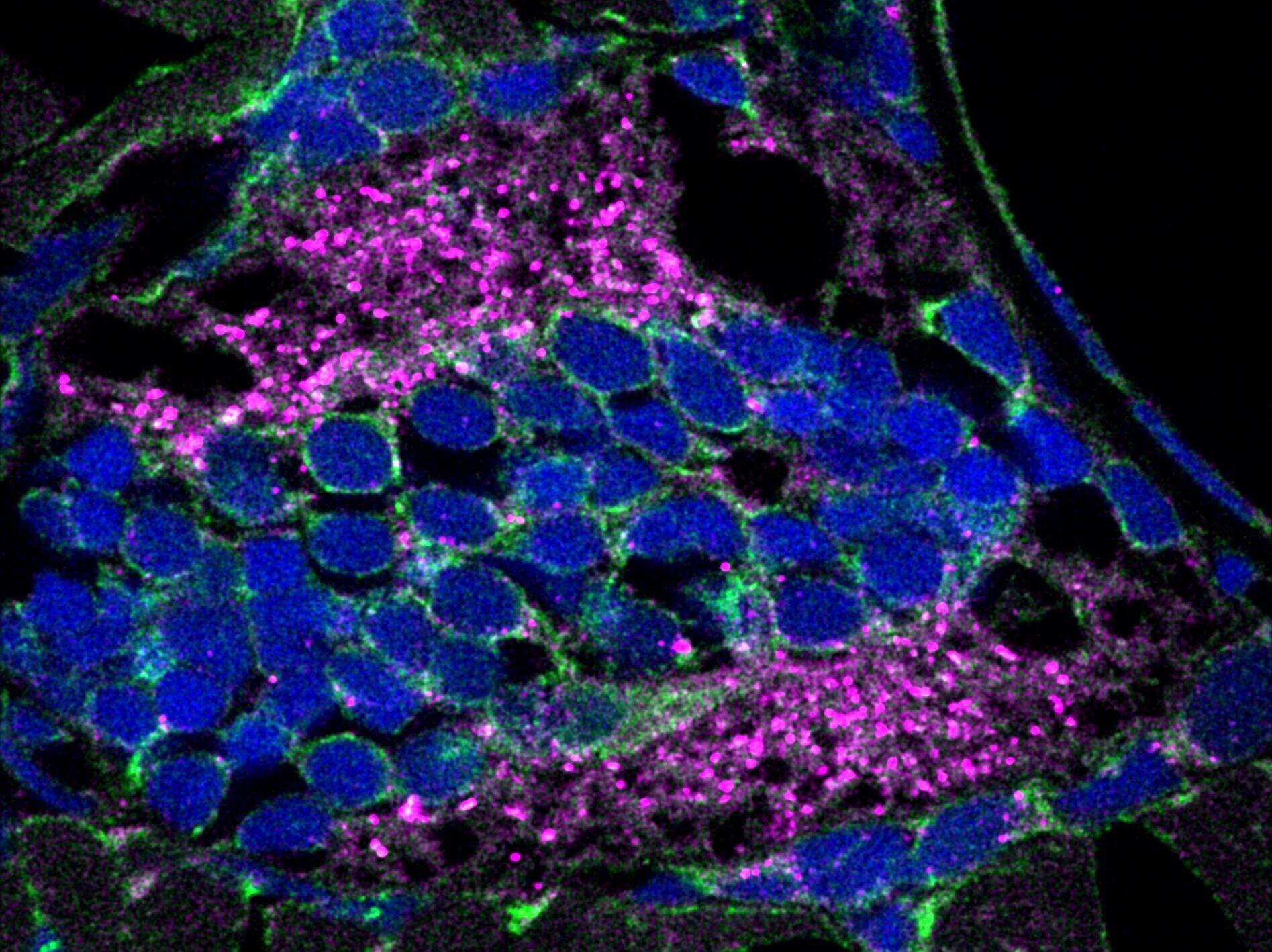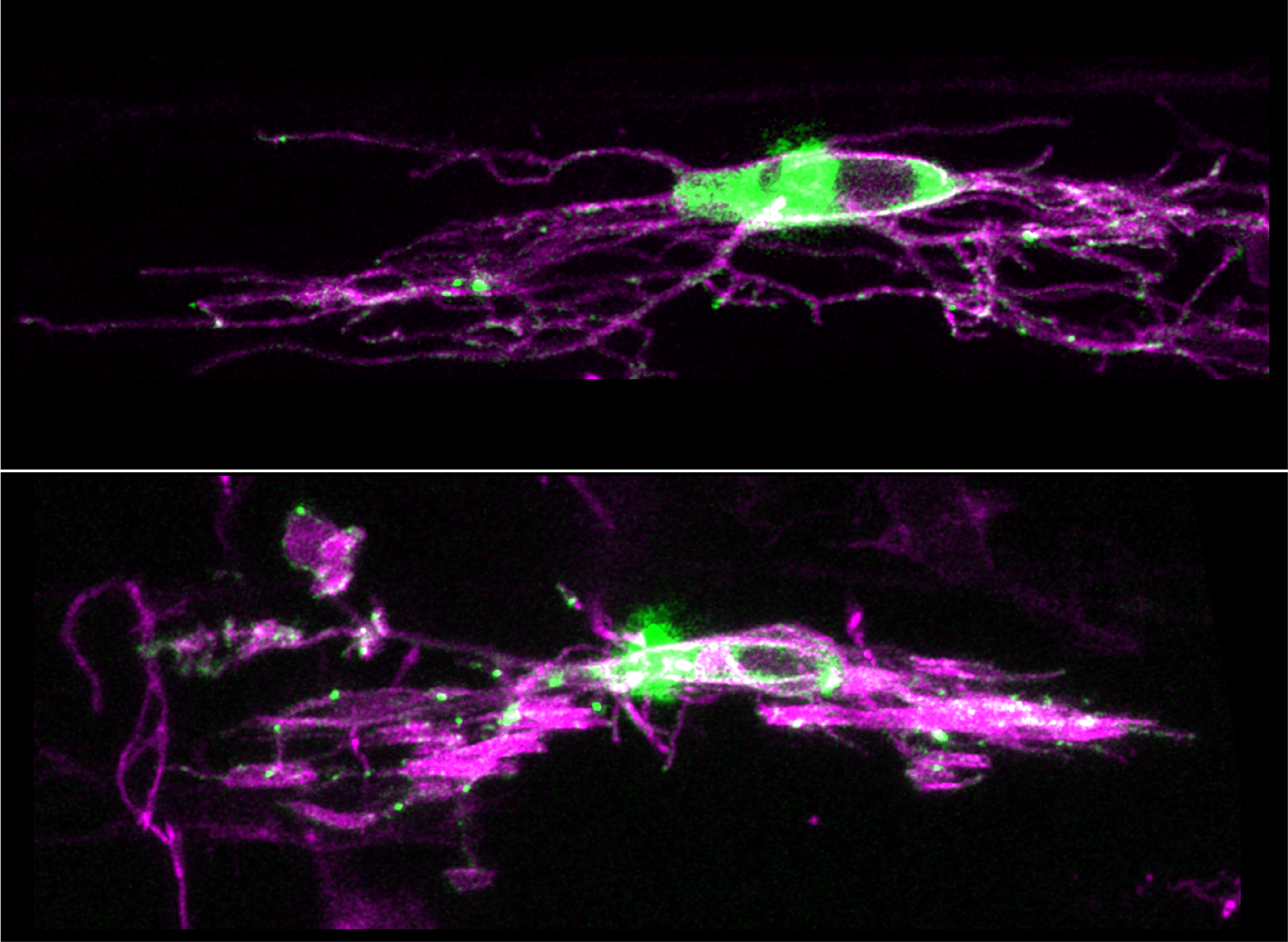
The Li Lab is a neuro(glia)biology research lab at the Medical University of South Carolina. We study oligodendrocytes and the critical roles they play in central nervous system (CNS) health and diseases. Currently, the intricacies of their regulation and interactions with neurons remain elusive. Our objective is to uncover the molecular and cellular mechanisms governing these processes, which will enhance our comprehension of how the CNS is constructed, functions, and malfunctions.
In many systems, significant efforts have to be made to study neuron-oligodendrocyte interactions due to cell complexity and invasive surgeries. For example, mice have ~71 million neurons protected by layers of tissues including skull. In contrast, there are ~100 thousand neurons in larval zebrafish and the transparency of the animals allows readily in vivo imaging without any surgeries. In the above video, there are ~300 oligodendrocyte precursor cells (OPCs; magenta-nucleus; green-cell processes). In addition, zebrafish is one of the few vertebrate models that are amenable to large-scale genetic and chemical screens and can be easily genetically modified to trace cells or manipulate genes. Overall, the Li Lab aims to combine the zebrafish system and molecular tools to effectively address fundamental questions underlying neuron-oligodendrocyte interactions.
Join us in advancing the science!
Research interests





Selected publications


